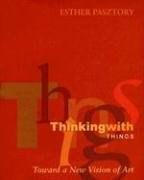

具體描述
The impetus for this book came from an appreciation that reflexivity, for both consultant and client, is the core ingredient for facilitating the "changing organization." Central to this belief, Reflexive Inquiry (RI) draws on the spirit of five overlapping theoretical traditions--systemic, social constructionist, critical, appreciative, and complexity. These principles each offer a contribution to the management of reflexive consciousness and are used to shape consultancy practice. Tools expressing these approaches and embodying and facilitating reflexivity are honed and sharpened with illustrations from specific organizational cases. RI is offered as a counterpoint to Appreciative Inquiry (AI), a prevalent consultancy methodology discourse for working with organizational change.In Part One of the book, the frame of RI is set out. In Part Two, its principles and tools are brought to life in organizational and community development contexts. Part Three draws out some implications of the principles, arguments, models, and tools presented for undertaking research, while Part Four concludes and takes a look at the potential for future development.
著者簡介
圖書目錄
讀後感
評分
評分
評分
評分
用戶評價
相關圖書
本站所有內容均為互聯網搜索引擎提供的公開搜索信息,本站不存儲任何數據與內容,任何內容與數據均與本站無關,如有需要請聯繫相關搜索引擎包括但不限於百度,google,bing,sogou 等
© 2025 book.quotespace.org All Rights Reserved. 小美書屋 版权所有




















